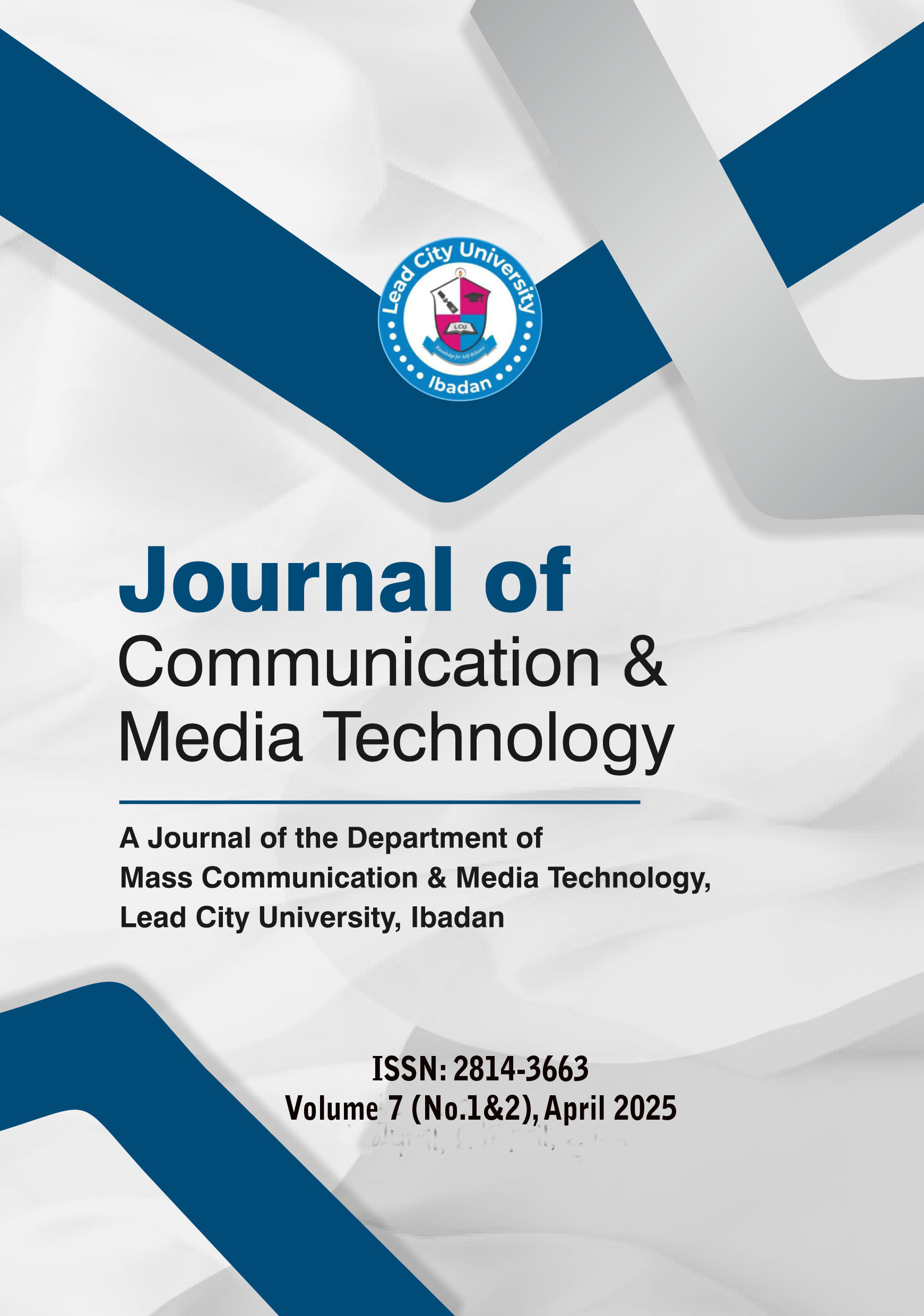Social Media, Attitudinal Change and Youth Involvement in Political Processes
Keywords:
Youth, Elections, Media, Politics, and NigeriaAbstract
The study investigated youth perception and attitude towards voting,
the impact of social media on voting behaviour, motivating factors for
voting, and gender differences in youth participation in the 2023
general election. It applied the use and gratification theory, which
suggests that individuals actively seek media content that fulfils their
needs. A phenomenological design was employed to gain an in-depth
understanding of participants' experiences and perceptions. Data was
collected through in-depth interviews conducted in three phases:
before, during, and after the 2023 general election in Nigeria.
Purposeful sampling was used to select diverse participants engaged in
political activities, with recruitment conducted through social media
platforms. An interview guide with clear and open-ended questions was
developed, and semi-structured interviews were conducted. The study
findings indicate that youth have diverse motivations and
considerations for their participation in the upcoming election, with
social media influencing their perceptions and decisions. Concerns
about electoral fraud and youth discouragement were expressed,emphasising the importance of transparency and youth empowerment
for increased participation in future elections. The results reflect a
combination of optimism and scepticism regarding youth engagement
in the electoral process. Based on the study findings, it was
recommended that there is need for implementing comprehensive civic
education programmes, improving transparency and accountability in
elections, promoting youth representation through affirmative action
and mentorship, addressing youth-specific concerns, utilising social
media for political education, fostering youth collaboration and
networking, addressing electoral violence and intimidation, and
conducting long-term monitoring and evaluation.

